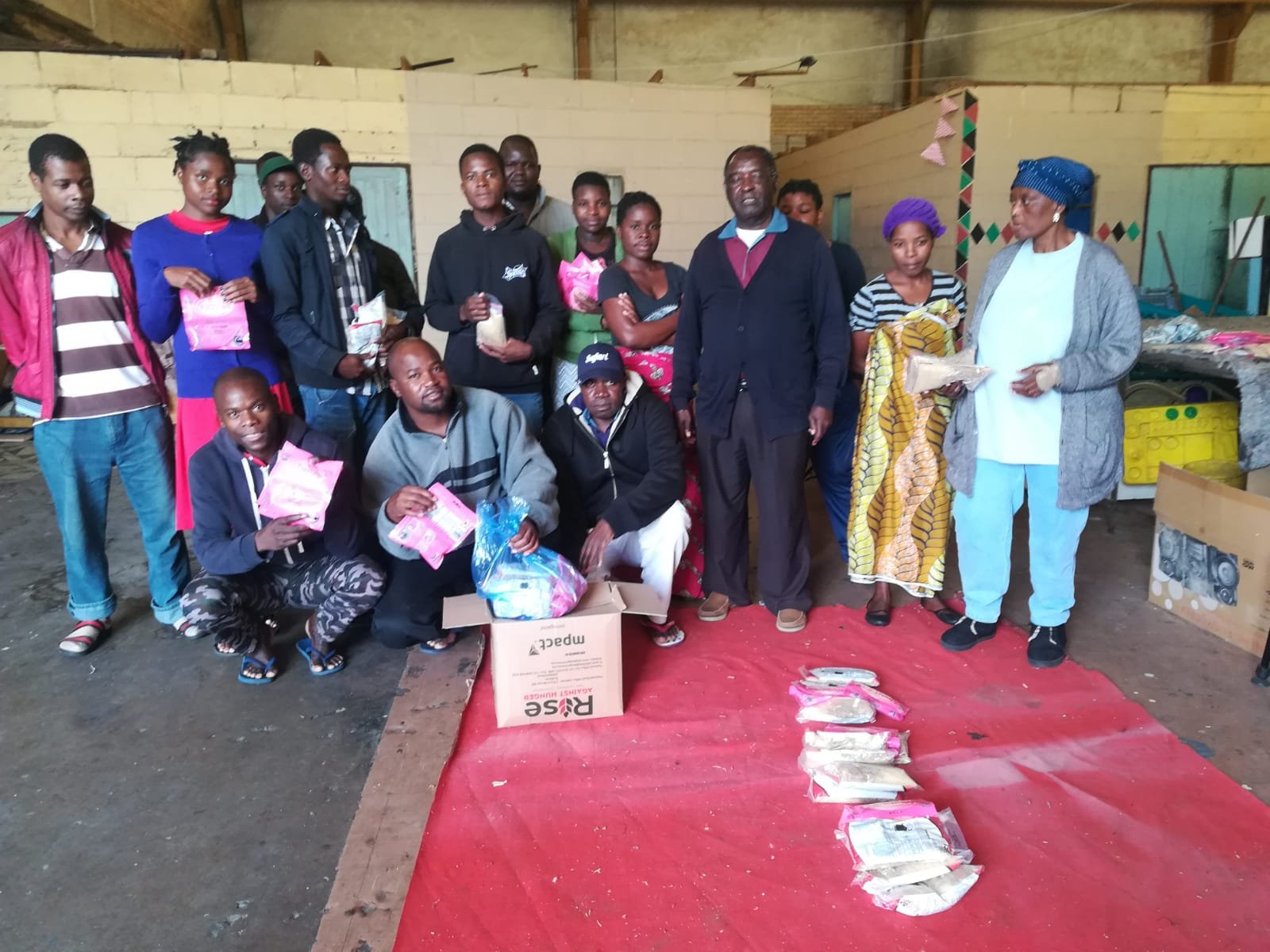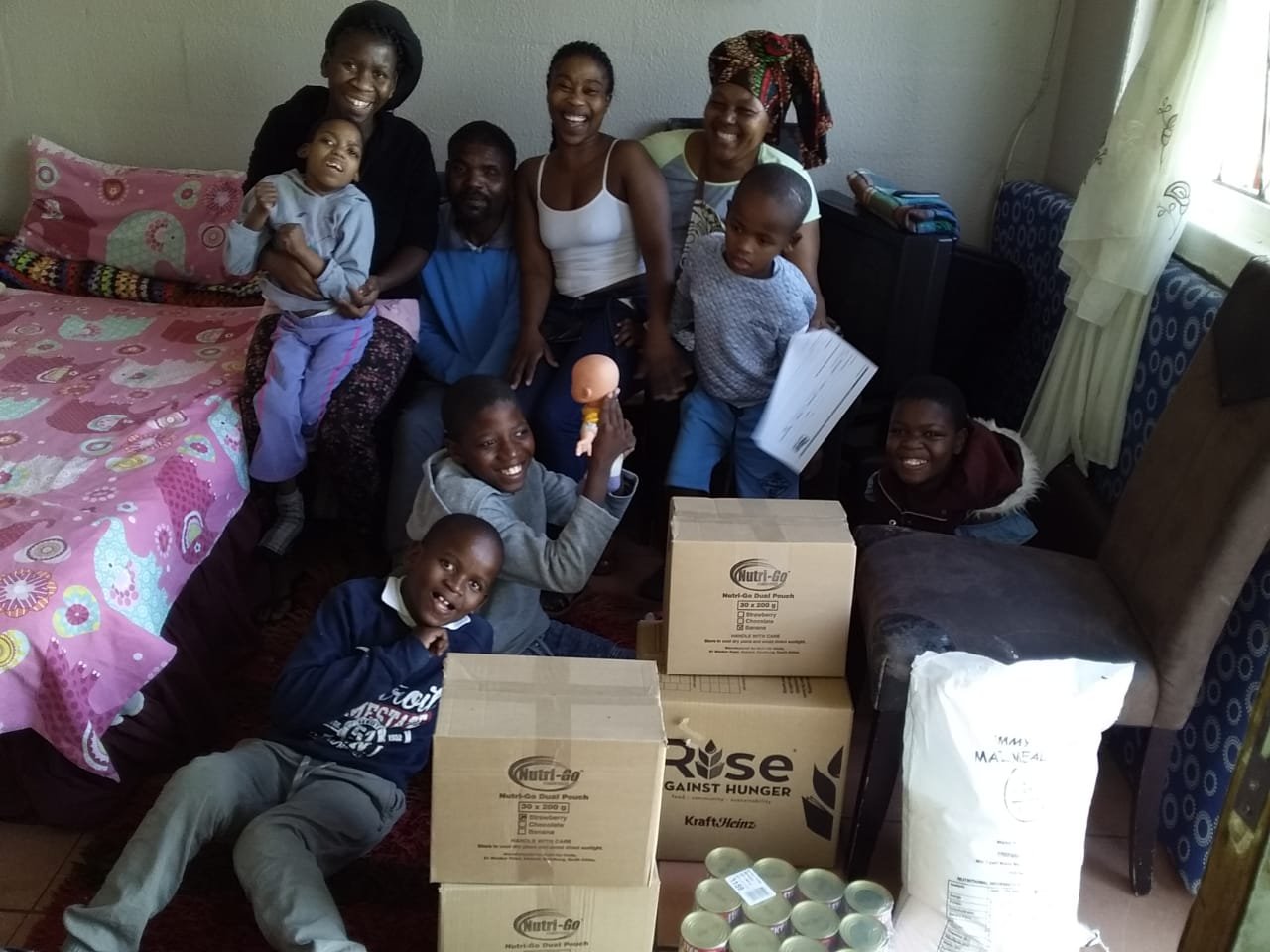More than 2 million jobs were lost in South Africa because of COVID-19 lockdown measures imposed in March. The surge in joblessness and the broader economic downturn deepened the country’s already widespread poverty.
By July, an estimated 2 in 5 households couldn’t afford enough food. Even before the pandemic, 2.5 million children were malnourished in the country. Since then, millions more have become at risk of hunger because of disrupted school meal programs.
In the midst of this crisis, the government struggled to meet the overwhelming demand for aid.
And so a coalition of nonprofits, including international hunger relief organization Rise Against Hunger, has stepped up to provide crucial nutrition relief to families unable to afford food on a daily basis.
Since the end of March, Rise Against Hunger has delivered at least 4.2 million meals across the country, adapting its approach to accommodate social distancing requirements and reaching people who had been overlooked by government programs, according to Brian Nell, CEO of Rise Against Hunger Africa.
“The demand was actually incredible,” Nell told Global Citizen. “We were really inundated with requests. The government was distributing food parcels, but there was a lot of red tape around who would receive those parcels and political influence around who would receive them.
“A lot of groups of foreigners, who were in the country from countries like Zimbabwe and Mozambique, who were looking for work, were now stuck here in this country, and they weren’t eligible [for government parcels] because they weren’t citizens,” he said.

Rise Against Hunger had to completely overhaul its approach to meal preparation.
Traditionally, the nonprofit invited volunteers, usually from local companies, to prepare and pack meals, but this process involves shoulder-to-shoulder cooperation. With social distancing mandates, they had to invest in new processes.
“We ended up employing contract workers at warehouses where we could monitor safety and COVID-19 protocols,” Nell said.
Rise Against Hunger also had trouble reaching its primary demographic: children. The pandemic prevented 9.6 million kids from going to school where they would normally receive the nonprofit’s meals.
Even more alarmingly, early childhood development centers that serve children from infants to age 6 were closed, Nell said. Like many food intervention nonprofits, Rise Against Hunger tirelessly combats stunting, which is when a child under the age of 5 receives too little nutrients and suffers irreversible cognitive and physical impairments.
Instead, the organization had to team up with community action groups, humanitarian organizations, and other NGOs to distribute meals to households.

The meals themselves are still the same — soy protein, enriched rice, and dried vegetables. The plant-based meals contain 20 essential vitamins and nutrients that are key for a child’s development.
“The meals are very well received among the children,” Nell said. “It’s an incentive to be in school, because they know they’re going to get the meal.”
“We’ve gotten great feedback from principals,” he added. “Kids are coming in who look malnourished, tired, and weak. When they eat the meals on a regular basis, they suddenly start blooming and shining, and their energy levels rise.”
Rise Against Hunger’s long-term goal is to help end hunger around the world, in line with the United Nations’ Global Goals. The organization has served more than half a billion meals in 78 countries, impacting an estimated 1.8 million people. Roughly 415,000 volunteers have come through their facilities to package meals and play a role in ending hunger.
The World Food Programme warns that more than 130 million people could experience chronic hunger by the end of the year, the sharpest annual increase in recorded history. And without massive humanitarian interventions, the United Nations warns that decades of global development could be reversed.
Nonprofits like Rise Against Hunger are on the front lines against looming starvation and they need resources to continue providing support to communities.
If countries can get beyond the immediate crisis of the pandemic, then economies can recover, and communities can move beyond the threat of hunger.
In South Africa, Nell said Rise Against Hunger is fostering community independence and resilience through the development of community gardens.
Thandanani is a youth-driven, passionate and focused group of volunteers striving to find new and innovative ways to uplift the community, as well as themselves. pic.twitter.com/qlAkpMqeyq
— RAH Africa (@RAH_Africa) September 26, 2020
Over the next decade, it plans to shift more resources into community gardens so that households no longer have to rely on packaged meals and can instead grow their own food.
“Our vision is to move more into sustainable farming sectors and social enterprise development. Whether it’s chicken farming, cattle farming, vegetable gardens — they create jobs, stimulate the economy, and make the community self-sufficient,” Nell said.
“Although our nutritious meals will be key going forward as we focus on early childhood development, the broader focus will be on sustainable farming.”